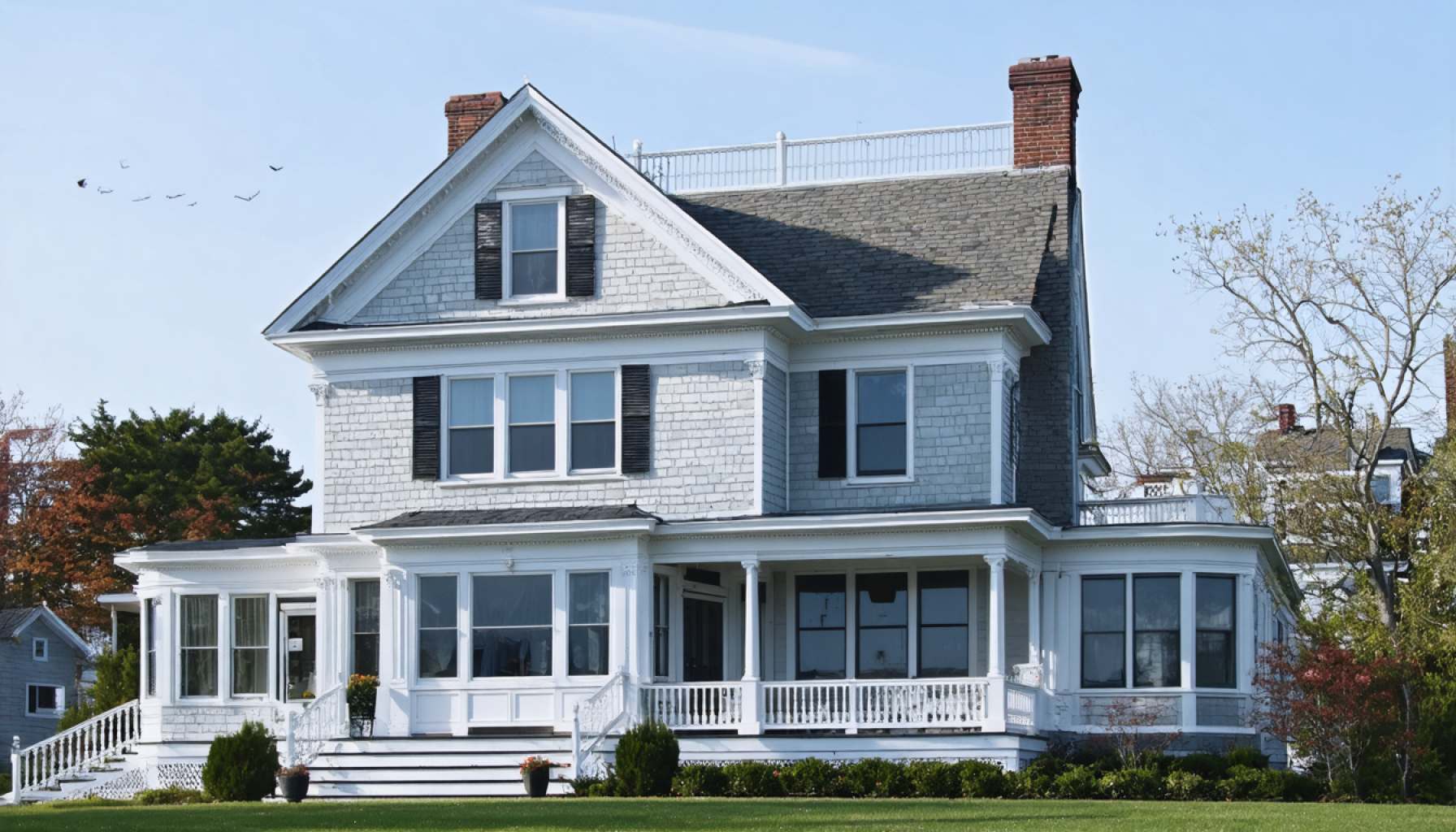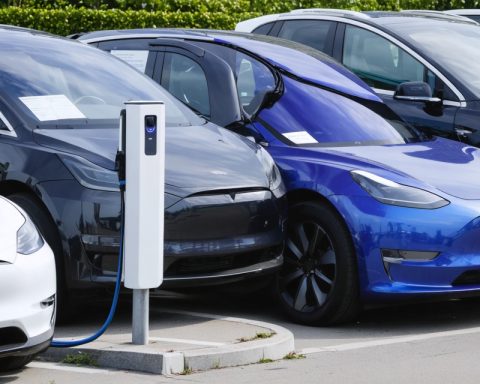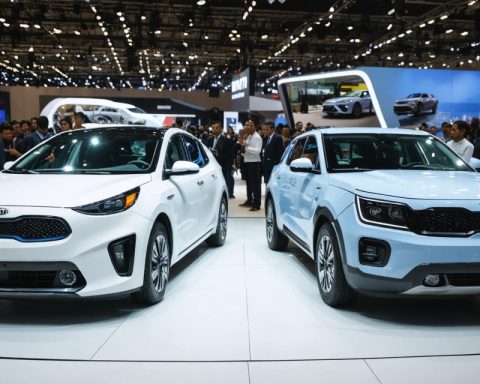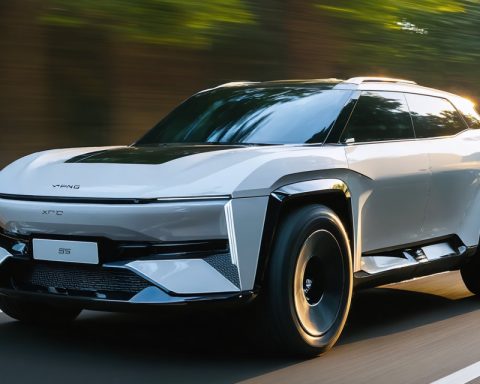- Marblehead, Massachusetts, is blending historic preservation with sustainability, targeting a 2040 net-zero carbon emissions goal.
- A $25,000 MAPC grant supports developing guidelines for incorporating clean energy solutions in historic homes.
- Workshops foster dialogue among residents, preservationists, and sustainability advocates on balancing tradition with modernity.
- Practical innovations include discreet solar panels, hidden heat pumps, and reversible EV charger installations.
- Urgency highlighted by 44% of the town’s emissions originating from residential buildings, prompting community-driven solutions.
- Guidelines are collaboratively shaped with input from experts in historic property management and energy efficiency.
- Efforts aim to transform Marblehead into a national model for sustainable adaptation of historic communities.
Abbot Hall buzzed with fervor as the local community of Marblehead, Massachusetts, embarked on a bold journey, striving to marry two powerful yet occasionally conflicting ideals: preserving their storied past and embracing a sustainable future. At the heart of this initiative was a workshop, a collaborative endeavor to harmonize historical integrity with modern energy efficiency.
Under the sweeping arches of the venerable town hall, a diverse crowd of residents, preservationists, and sustainability advocates engaged in an animated dialogue. The central question echoed throughout: How can Marblehead’s majestic historic homes adapt to clean energy technologies without losing their quintessential charm?
This gathering marked a significant step in a well-orchestrated campaign, fueled by a $25,000 Metropolitan Area Planning Council (MAPC) grant. It aimed to develop actionable guidelines for installing solar panels, heat pumps, and electric vehicle chargers in the town’s cherished Old and Historic District. The endeavor aligned perfectly with Marblehead’s ambitious net-zero carbon emissions goal set for 2040.
Tables displayed colorful design examples, and discussions flowed as thick as the coffee in their cups. Participants reveled in an interactive exercise, building model houses to experiment with technology placements, sparking both innovative solutions and a profound sense of shared responsibility.
Sasha Shyduroff Gutman of the MAPC projected the urgency of this mission, illuminating the town’s vulnerability to climate-induced threats like coastal flooding and rising sea levels. The sobering statistic she shared—that 44% of Marblehead’s greenhouse gas emissions stem from residential buildings—struck a resonant chord among attendees.
Margaret Back, from Rhode Island’s Newport Restoration Foundation, offered insights from her extensive experience overseeing historic properties in precarious flood zones. Her advice emphasized starting with foundational energy efficiency improvements before layering on advanced technologies. This thoughtful approach underscored an essential truth: sustainability must be built on a robust foundation of conservation.
Elizabeth Paliga of Historic New England emphasized the delicate art of negotiation between modern needs and historical preservation. Her expertise in managing privately owned easement properties highlighted innovative strategies to navigate restrictions while achieving energy efficiency.
Facilitators like Lindsay Randall guided participants through these intricate puzzles, distilling community feedback into actionable draft guidelines. These guidelines, meticulously refined through prior public engagement, suggested innovative yet respectful adaptations: discreet solar panel placements, strategically hidden heat pumps, and reversible installations of EV chargers.
As conversations ebbed and flowed, a palpable sense of community purpose materialized. Residents and officials alike recognized the challenges ahead but also the incredible potential to set a precedent for other historic towns. By aligning community values with progressive energy solutions, Marblehead aspires to be both a guardian of its history and a beacon of sustainability.
The workshop wrapped up but not before capturing the vibrant tapestry of ideas and aspirations on feedback forms and a community vision board. As the sun set over Abbot Hall, it was clear that Marblehead was not just preserving its past; it was designing a sustainable heritage for future generations.
The final set of guidelines—shaped by collective insight and passion—is poised to debut later this spring. Marblehead stands at the threshold of transformation, a testament to what a community can achieve when guided by respect for history and a commitment to a greener future.
Marblehead’s Path to Sustainable Heritage: Unlocking the Balance Between History and Modernity
Introduction
In Marblehead, Massachusetts, a thrilling community initiative aims to transform the town’s rich heritage into a beacon of sustainability. By integrating clean energy technologies with historical preservation, the local community demonstrates a capacity for innovation and adaptation. With $25,000 in funding from the Metropolitan Area Planning Council (MAPC), the town is shaping a future where its storied past and sustainable goals coexist.
Real-World Use Cases and Life Hacks
1. Solar Panels on Historic Properties: To preserve aesthetic integrity, consider using solar shingles that mimic traditional roofing materials. Alternatively, place panels on less visible sections, like rear-facing rooftops.
2. Discreet Heat Pumps: Select models with low-profile, noise-reducing designs and install them in less conspicuous areas, such as courtyard gardens or inside basements, while maintaining circulation efficacy.
3. Reversible EV Chargers: Utilize mobile or temporary EV charger units that can be stored or relocated when necessary, ensuring they don’t permanently alter historic facades.
Industry Trends and Market Forecasts
As interest in sustainable technologies grows, the market for these solutions is rapidly expanding. According to a study by Allied Market Research, the global solar energy market is expected to reach $223.3 billion by 2026. Additionally, the heat pump market is estimated to grow at a CAGR of 8.4% over the next five years, reflecting increasing demand for eco-friendly heating solutions. Towns similar to Marblehead are likely to see greater integration of such technologies.
Reviews and Comparisons
– Solar Shingles vs. Traditional Panels: Solar shingles offer aesthetic advantages and lower maintenance but can be costlier than standard panels.
– All-in-One Heat Pumps vs. Ductless Systems: All-in-one units are best for extensive renovations, while ductless systems provide an easy retrofit solution.
Limitations and Challenges
1. Regulatory Hurdles: Navigating local regulations and obtaining necessary permits can be complex, especially in historic districts. Residents must work closely with local councils and preservation societies.
2. Initial Costs: While sustainable technologies offer long-term savings, initial installation can be expensive. Assessing financing options, such as green loans or grants, is critical.
Expert Insights and Recommendations
– Margaret Back’s Advice: Start with foundational energy efficiency measures, such as weatherization and energy audits, before installing advanced technologies.
– Elizabeth Paliga’s Strategies: Innovative negotiation with preservation guidelines can achieve harmonious alignment of modern needs with historical integrity.
Community and Environmental Impact
The initiative’s emphasis on community engagement fosters a collective commitment to sustainability. This model not only serves Marblehead but also offers a replicable framework for other historic towns striving to mitigate climate change impacts while preserving heritage.
Actionable Tips
– Conduct an Energy Audit: Identify areas for improvement in energy efficiency as a first step.
– Use Rebates and Incentives: Explore state and federal programs that offer financial incentives for adopting renewable energy technologies.
– Engage with Local Preservation Boards: Collaborate to ensure your sustainable upgrades meet historical preservation standards.
Conclusion
Marblehead is setting a remarkable precedent, illustrating how communities can balance historical identity with modern environmental consciousness. By leveraging innovative approaches and fostering collaborative spirit, the town is crafting a legacy that respects its past while embracing a greener, sustainable future.
For more on sustainable urban planning initiatives and how they impact heritage conservation, visit the Metropolitan Area Planning Council.














